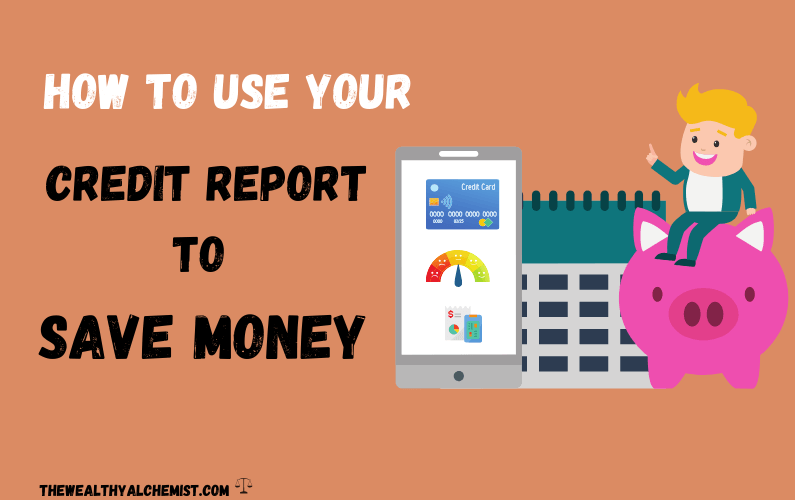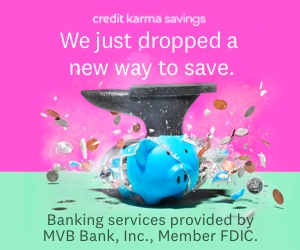
You’re sitting across from a salesman waiting to hear if you’re approved for a loan or not.
The salesman was friendly and promised to see what he could do for you. And of course, you believed him. You gave him all your personal information. And you waited while he contacted some nameless, faceless person at the financing company.
Now, you’re sitting at his desk waiting for the financing company to pull your credit report and pass judgment. Do you qualify or a loan or not?
We’ve all experienced this situation. And it would be nice to think that everyone involved (i.e. the salesman, financing company, and credit reporting agencies) were all working to make sure you get the best deal possible.
But the reality is that they’re all working for one thing and one thing only. To make money.
This may seem like an obvious statement, but you’d be surprised how many people overlook this fact.
The whole consumer credit industry is comprised of for-profit businesses that are looking to earn money. Your money.
Pro Tip: Know your worth! Before going to buy a car, house or any other big ticket item, get your FICO credit score and report from myFICO. Then, using an online calculator find out what a reasonable interest rate for would be for someone with your score.
Contents
Your Credit Report and the Consumer Credit Industry
Many companies in this industry obviously make money by making loans, but they also make money on your information.
Yep, from your first credit card application until today, hundreds of companies have been analyzing your financial life. Their goal is to monitor your financial performance, predict your financial future, and of course, sell you more things.
And with hundreds of companies saving your data in their (very hackable) computer systems, your chances of being the victim of data breaches and identity theft increases with each new company that gets their hands on your data. (In fact, data breaches, in general, have increased over the years)
But it turns out that errors in your credit report are also a big problem.
Back in 2012, over 40 million Americans had errors in their credit reports! Just imagine what the numbers are today!
With this being the case you’d think the credit reporting agencies would be interested in fixing the errors, but sadly this isn’t the case. After all, they don’t have any incentive to change anything.
Why? Because errors in your report usually have a negative impact on your report and lower your credit score. And a lower credit score means that you can be charged a higher interest rate on your loan. Which means higher profits for lenders.
Related Post: Journey to Fix My Credit- From Zero to Hero.
The Importance of Checking Your Credit Report
Remember, the consumer credit industry is out to make a profit. And they’re not likely to do things that reduce profits.
And it’s not just me saying this.
In 2011, 750,000 claimants brought a class action lawsuit against Experian, TransUnion, and Equifax for their failure to accurately report discharged debts. The case was settled for $45 million dollars.
In 2013 Equifax was ordered to pay over $18 million to a woman who could not get them to remove inaccurate information from her report.
And in 2015 Equifax settled a lawsuit that claimed the company misrepresented the source of public record information that it was putting on its credit reports.
This is why it’s incredibly important for each of us to monitor our own credit with apps such as Credit Sesame or Credit Karma (I have both) so that you can constantly monitor what’s in your credit history.
You should also request your free annual reports from the three credit reporting agencies. And in certain cases, I recommend you pay for your credit report from myFICO.com. More on that later…
[convertkit form=942850]
Your Interests vs Their Interests
Now the purpose of this post isn’t to bad mouth the consumer credit industry. No, no, no…
They provide a valuable service. I mean, a wealthy 50-year-old woman who’s been fiscally responsible for the last 30 years shouldn’t have to pay the same interest rate as an unemployed 25 years old who’s just gone through bankruptcy. After all, they don’t represent the same financial risk.
Credit reports make it possible for lenders to determine who’d be the riskier debtor and act accordingly. And that’s a good thing.
No, the main purpose of this post is to point out that the consumer credit industry’s interests aren’t always in line with your interests. The second purpose is to show you just how important it is for you to monitor your credit history and score (again, with free apps like Credit Sesame and use that information for your own benefit just like the consumer credit businesses do.
Related Post: How to increase your credit report by 200 points!
What you don’t know can hurt you
Some may say, “yeah, yeah, yeah…companies are monitoring my data. There’s a rise in data breaches and credit reporting errors. But it hasn’t affected me. And if credit reporting agencies won’t even fix the errors found how will monitoring my own data help?”
Alright, alright…that’s a good point.
But riddle me this. What’s the interest rate on your car loan? (or any other loan you have for that matter)
Now riddle me one other thing, what should have been the interest rate on your loan be given your credit score?
Most of us can answer the first question. It may take us some time to track down our paperwork, but we can answer that question eventually!
But the problem comes when we get to the second question. Most of us can’t answer that one.
Why? Because we’ve never taken the time to analyze our credit report and calculate what a normal interest rate is for someone with our score (by the way, you can use myFICO’s free interest rate calculator here).
Not knowing our own credit history and how it’s viewed by the industry can cost you a lot of money if you accept bad loan terms. But how will you know what bad terms are when you see them?
Doing The Homework
The good news is that you don’t have to just take what the financing company offers you completely in the dark.
Before going into a situation where you’re looking for a loan you should first do your homework.
It’s not that difficult nowadays. With Credit Sesame and Credit Karma, you can get an estimate of your credit score anytime, anywhere. It also will give you an idea of what’s in your credit report. This free app is a phenomenal resource if you just want to stay on top of your credit score and take steps to improve it.
But if you’re going for a loan a Credit Score estimate may not be enough. You’ll want to pull out the big guns and buy your credit report and FICO scores from MyFICO. The reports offered by MyFICO are the closest to the professional reports received by financing companies.
And it can give you a pretty good idea of what the financing companies will see when they check your credit.
But why pay myFICO $20-$60 dollars when you’re allowed a free annual report from the credit bureau.
Well, myFICO not only gives you credit reports, but it gives you your FICO score. The free annual reports don’t include a score. And remember you’ll need your credit score if you want to use an interest rate calculator such as the one found here on myFICO.
But let’s go back to purchasing from myFICO. Imagine you’re going to buy a $2,000 furniture set, or a $20,000 car or a $200,000 house.
If you’re going to spend that much money a $60 credit report is a drop in the bucket for the information you receive. The score and report you will receive will be invaluable in preparing to deal with your potential lender.
Related Post: How to Buy a Car With Bad Credit.
Final thoughts
The consumer credit industry provides a valuable service, but never forget that its purpose is to make money.
This is a good thing.
But if we’re not proactive in monitoring our credit history and doing our homework then we will always be at the mercy of someone else’s profit motive.
Begin monitoring your credit score and history with Credit Sesame and Credit Karma today!
And don’t forget, the next time you’re going to take out a loan make sure you get your myFICO report, calculate your loan rate and be willing to shop around.
Cheers!

Oliver
Latest posts by Oliver (see all)
- 26 Best Personal Finance Tips To Rock Your Money! - November 18, 2020
- How Much is 6 Figures? Epic Salaries Explained. - September 10, 2020
- Is Ibotta Legit? The Most Complete Ibotta Review 2021 - April 15, 2020



